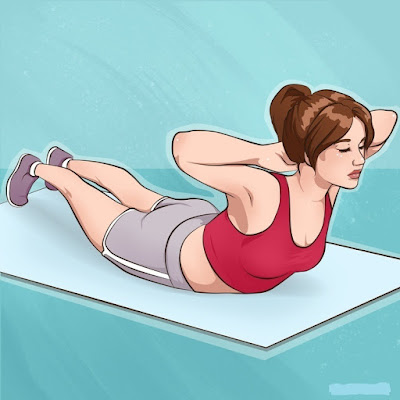7 Conditions that are Caused by Sleeping with Wet Hair
If you find yourself frequently sleeping with wet hair, you may think twice after reading this.
You won’t magically wake up with a cold or flu if your hair isn’t dry at bedtime since those are caused by viruses, not temperature or wet hair, but there are other consequences to this common practice.
Some of the more obvious consequence have to do with hair health, while the more surprising ones affect your skin and body. When it comes down to it, the inconvenience of drying your hair is much less impactful than dealing with the conditions below.
7 Reasons Why Sleeping with Wet Hair isn’t Great
Get out your hair dryer!
1. Hair Breakage
Hair is at its most fragile when it’s wet. It’s porous and can absorb up to 45% of its own weight in water.
The involuntary movement of your head during sleep pulls your hair every which way, increasing the risk of breakage. This affects the overall texture of your hair and makes it harder to grow out. Plus, broken ends have a tendency to frizz, a situation most of us want to avoid.
2. Tangling
Hair is much more likely to tangle when it’s wet. Tangled hair can pose a challenge in the morning, as knotting can lead to breakage.
Many women don’t brush their hair after showering since we’ve been told it can damage the hair shaft and cause breakage but the solution is simple: run a wide-tooth comb, boar bristle brush, or your fingers through your wet hair, towel dry, and style as usual
3. Dandruff
Dandruff can be caused by dry scalp, eczema, psoriasis, or a fungus, all of which can be exacerbated by sleeping with wet hair.
Fungus thrives where it’s warm, dark, and moist—your scalp is all of the above when you go to bed with wet hair. Additionally, skin that is kept wet and left to slowly air-dry can worsen the itchiness and flaking caused by eczema and psoriasis.
4. Dullness
Shine comes from your hair’s moisture and natural scalp oils. When you place your wet head on a dry pillowcase, the fabric absorbs moisture from your hair and leave the hair shafts dehydrated and lackluster.
5. Ringworms
Scalp ringworm is a highly contagious fungal infection that itches terribly and can cause patchy hair loss. It’s called “ringworm” because it grows in red, scaly circles.
Scalp ringworm is a different strain than the ringworm that grows on other parts of the body or on the skin of your family pet.
When you lie on a pillow with wet hair, the pillow becomes warm and damp; the combination of damp hair and damp pillow fosters fungal growth. It also makes you more likely to infect other family members, especially if you share a bed.
6. Bacteria and Mold
Just as in the case of fungi, bacteria and molds that normally reside on your scalp can grow out of control in a warm, damp environment. Bacteria and mold growth can cause a flaky scalp, which can lead to hair loss.
On top of that, making it a habit of sleeping with wet hair can cause these micro-organisms to penetrate into your pillow, where they can take up residence and cause reinfection.
7. Headache
If bacteria begin to grow on your scalp, your body will naturally increase blood flow to the skin to ward off infection. The increased pressure can lead to a headache. Who wants to start their day that way?
Proper Hair Care
If your hair is wet at bedtime, consider taking steps to minimize potential problems.
Towel dry your hair as soon as you leave the shower.
Take as much dampness out of your hair as you can before it hits the pillow. Use a diffuser on your hair dryer or gently blot hair with a cotton T-shirt to remove excess water.
Use a silk or satin pillowcase; it is less abrasive than cotton to minimize the potential for breakage at night.
Gently twist or braid your hair and lightly fasten with non-pulling hair ties.
Apply a leave-in conditioner to help your hair maintain moisture.
Do not leave hair wrapped in a towel when you sleep.
Doing so increases the chances of developing micro-organism overgrowth. Additionally, your head will retain heat, which is not conducive to solid, productive sleep. You’ll sleep better if you’re slightly cool.
Don’t wrap your hair tightly or in a bun so that your hair and scalp have an opportunity to dry while you sleep.
Try to bathe earlier in the evening to give your hair a chance to dry before bedtime.
If you’re not a fan of hairdryers, sit in front of a mechanical fan to dry your hair without the heat.
Managing your hair is an important part of self-care and overall health.
This small change in routine may seem small, but it can have a profound effect on how you view yourself and your body in the long run. Make sleeping with wet hair a thing of the past and you’ll be glad you did.
loading...



